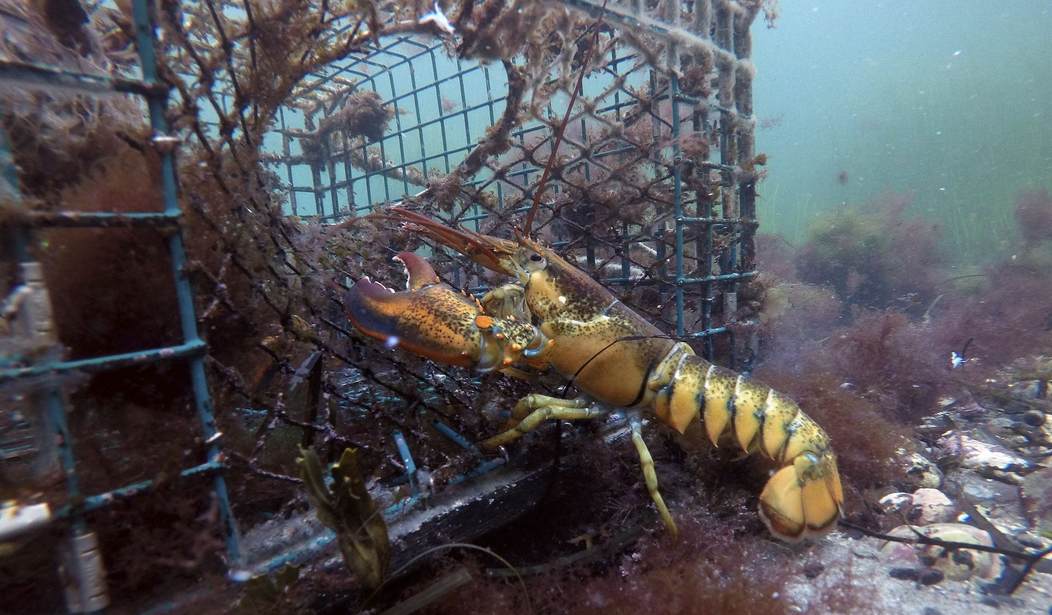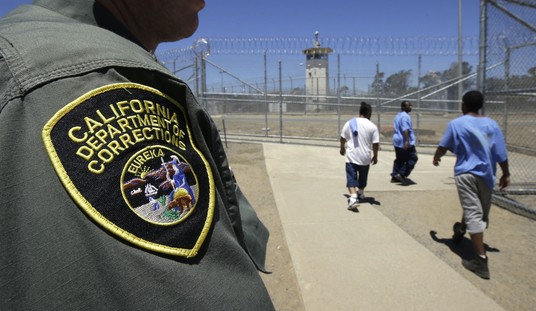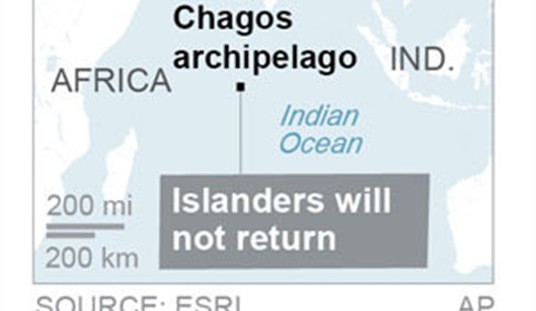Because we’ve apparently solved all of the other problems facing humanity, a political battle has once again broken out in Maine over the state’s lobster fishing industry. Two environmental groups recently decided to remove their endorsements of the industry, leading national retail giant Whole Foods to announce that it would no longer carry lobsters in its stores. But the twist in this story is that the groups aren’t trying to protect the lobsters. They’re claiming that their decision is intended to protect whales, specifically the North Atlantic right whale, which is currently on the brink of extinction. The whales apparently become entangled in the lobster-trapping equipment from time to time. (Associated Press)
Environmental groups are once again at odds with politicians and fishermen in New England in the wake of a decision by high-end retail giant Whole Foods to stop selling Maine lobster.
Whole Foods recently said that it will stop selling lobster from the Gulf of Maine at hundreds of its stores around the country. The company cited decisions by a pair of sustainability organizations to take away their endorsements of the U.S. lobster fishing industry.
The organizations, Marine Stewardship Council and Seafood Watch, both cited concerns about risks to rare North Atlantic right whales from fishing gear. Entanglement in gear is one of the biggest threats to the whales.
There seems to be no question that the right whale is close to extinction. There are only an estimated 340 of the animals left in the ocean and they don’t repopulate quickly. But the lobstermen object to this decision, saying that they have already made significant changes to the gear they use to make it safer for the whales. Those changes don’t seem to have made enough of a difference, however. The right whale population has dropped from 450 in 2017 to 340 today. In 2018, there were only five right whale calves born, while 17 adults died. The majority of them were either caught in ropes or struck by boats.
At the same time, losing Whole Foods as a customer will blow a major hole in the lobster fishing industry in Maine, which has the largest lobster population in the United States. This decision has the Governor of Maine and the entire state’s congressional delegation up in arms. The financial impact on the state could be considerable at a time when the economy is already in more than enough trouble. (NY Post)
In a joint statement, Gov. Janet Mills and the state’s four congressional legislators voiced their concern about the impact on local fishermen’s livelihoods and defended the state’s fishermen, saying they’ve been committed to sustainability and protecting right whales.
“The Marine Stewardship Council, with retailers following suit, wrongly and blindly decided to follow the recommendations of misguided environmental groups rather than science,” the politicians said.
This sounds like a pretty tough call to make. If the goal is to prevent the right whale from becoming extinct, that’s a process that would take decades to complete, assuming it’s even possible. Even if no more whales die accidentally because of the lobster fishing industry, it might be the end of the century before their numbers get back up to 1,000.
Of course, this decision by Whole Foods isn’t going to eliminate the lobster industry entirely. Nobody is outlawing lobster fishing. (At least not yet, anyway.) And as long as there is a demand for lobster, people will find a place to buy them and those sellers will be ordering most of their lobsters from Maine.
While it would be sad to see another species go extinct, the right whales may simply be on their way out of the game. If only some clever person could come up with a way to completely “whaleproof” all of the lobster fishing gear.








Join the conversation as a VIP Member